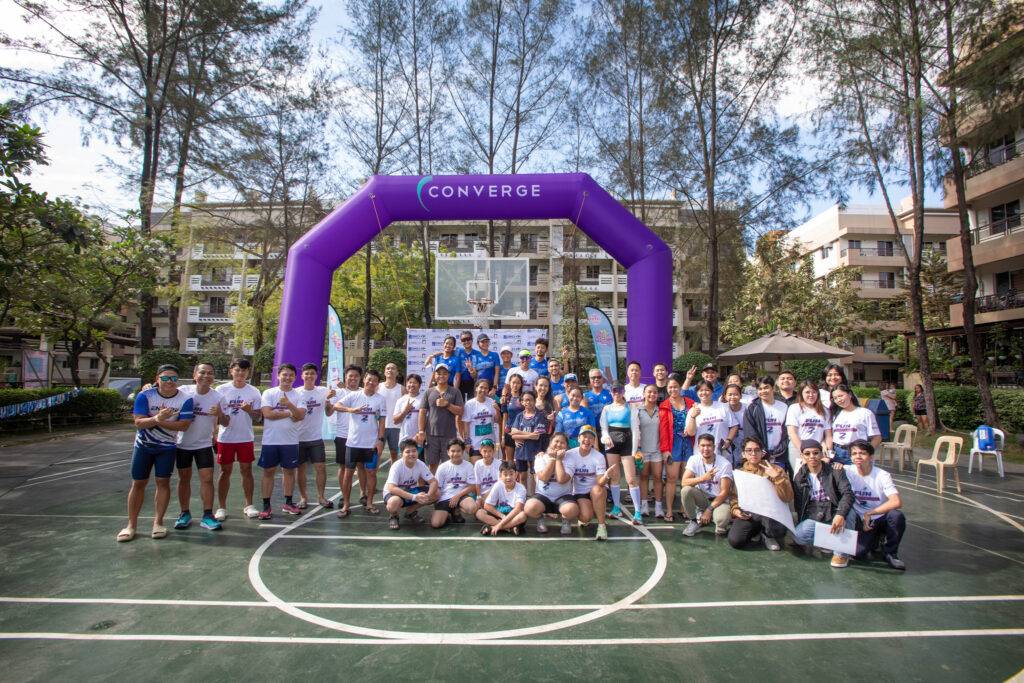Living in the Philippines can be quite fun but it can also be very challenging because of the weather. In other countries, they experience four seasons in one year. Keeping up with all season changes can wreak havoc on our daily routine.
One minute, it’s sunny and hot, and everyone is sweating. The next minute, the clouds are grey, the sky is loud with thunder, and you are suddenly drenched from the unexpected downpour. No wonder the rainy season is also dubbed as the season of colds and flu.
But armed with the right kind of practices and an attitude dedicated to health protection, it is quite possible to remain at your healthiest, especially protecting your kids at home from sickness, amidst the cold and rainy season. Here are 9 colds and flu prevention tips to help you stay well.
1. Always bring an umbrella with you
 Photo courtesy of Gratisography via Pexels
Photo courtesy of Gratisography via Pexels
With the rain surprising you at any time of the day, it always pays to be prepared. Thus, having an umbrella is getting one step ahead of the problem because it shields you from getting wet. When you get wet, your body temperature drops, which may weaken your immune system. Also, the rainwater hitting the ground helps the bacteria and viruses evaporate into the air, making people more vulnerable to colds.
Having an umbrella is your number one defense from the rain. When you have an umbrella, you also have protection from both the rain and the harsh heat of the sun. Take it from Rihanna when she sang “Under my umbrella-ella-ella-ella-eh-eh-eh,” she knows what she was singing about.
2. Wash your hands as often as possible
 Photo Courtesy of Burst via Pexels
Photo Courtesy of Burst via Pexels
One of the things you can do to prevent colds and flu is the frequent washing of your hands. During the day, you are unaware of the things that you’ve touched. Petting your dog or riding public transportation may not seem like an activity that would expose you to bacteria and viruses. However, studies claim that you need to wash your hands after doing these kinds of actions since it can still make you vulnerable to catching colds.
Basically, washing your hands is one powerful way to keep the bacteria away. Also, make sure to wash your hands as thoroughly as possible. According to the Centers for Disease Control and Prevention, wash your hands for at least 20 seconds. While this protects you, this also helps prevent the flu from spreading in your house and in your workplace.
3. Drink plenty of water
 Photo courtesy of RawPixels via Pexels
Photo courtesy of RawPixels via Pexels
According to CNN, staying hydrated has numerous advantages in being healthy. For starters, enough water in the body can facilitate further in eliminating waste from our body, strengthening our immune system and making our skin healthier. Consuming plenty of water is also a way to prevent the flu naturally.
While this practice can surely shelter you from colds and flu, doing this carelessly may also lead you to sickness. Refrain from drinking water at public drinking fountains since you never know who or what has touched the nozzle of the fountain. This makes the nozzle host to a variety of bacteria from different people. So, to avoid a possible health mishap, consider obtaining water from your own home or buy fresh bottles of water at the grocery.
4. Wear a face mask and use a handkerchief when commuting
 Photo courtesy of Ani Kolleshi via Unsplash
Photo courtesy of Ani Kolleshi via Unsplash
Commuting is an inevitable part of living the city life but in the Philippines, the commuting scene isn’t as pleasant as we ought to be. Riding the train isn’t as efficient as we think, even though it may seem faster. A sea of people is out there to compete for a spot in a train and sometimes, riding with them in a semi-ventilated carriage can be an area that spreads bacteria.
To avoid this, make sure to always bring a face mask and a handkerchief to shield yourself from bacteria that may be lurking inside any public transportation. And, in the event, when it is you who is sick, wear a face mask for other people’s benefit; so you will not be able to spread what you have, whether you are at home or outside.
On the other hand, it’s also ideal that you bring a handkerchief with you; so when you sneeze, you can cover your face with it. Keeping a handkerchief and a box of disposable face masks with you at all times is one smart way to live the city life.
5. Bring an extra change of clothes
 Photo courtesy of Ylanite Koppens via Pexels
Photo courtesy of Ylanite Koppens via Pexels
When you commute for at least an hour or two, you sweat a lot because of the outdoor heat. Or you could get wet in the rain. So, to stay dry and warm during the rainy season, bring a change of clothes. Remember, if you get wet in the rain and you don’t change your clothes, this can cause hypothermia, a dangerous and sudden drop in body temperature caused by long exposure to cold temperatures.
Also, when your body temperature drops, it can weaken your immune system, making you more vulnerable to bacteria and viruses. Changing your clothes is an effective way to prevent this.
So, to prevent hypothermia from encroaching on your health, bringing a change of clothes is a daily necessity for you.
6. Exercise
Defeating the bacteria that cause colds and influenza requires discipline and hard work, which is why exercise is an effective method in making yourself immune to these diseases. For one, exercising holistically improves your health, which results in the strengthening of your immune system.
If you think that you do not have time for exercise, brisk walking for 30 minutes is enough for a day’s worth of physical fitness. On the other hand, yoga is also a suitable exercise for anyone who wants to have an upgrade in their physical health, along with their mental and spiritual well-being.
Overall, any physical activity–whether it is an aerobic exercise or a cardio workout–can be very helpful in your fight against colds and flu this rainy season. It is also the key to maintaining a harmonious and a robust lifestyle.
7. Don’t skip your greens
One mistake you can commit in life is to not eat your fruits and veggies. Though they may not seem the most appealing, find ways to integrate this healthy and nutritious food in your and your family’s meal plan.
Eating fruits and vegetables is a great way to consume vitamin C, which is a powerful way of boosting your immune system. Leafy, dark green vegetables such as kangkong, spinach, broccoli, and cauliflower are abundant in any market in the Philippines. So are citrus fruits such as oranges, calamansi, and lemon. Moreover, they can also be easily integrated into Filipino dishes.
Thus, having a diet that consists of vegetables and fruits can provide you the vitamins that you need and can also facilitate weight management. So, do not be hesitant to make adjustments in your diet. In the long run, you will thank yourself for it.
8. Take your daily multivitamins
 Photo courtesy of Ajale via Pixabay
Photo courtesy of Ajale via Pixabay
For the hardworking citizens out there or the stressed-out students who do not have the time to make a meal plan, taking daily multivitamins is a way of compensating for that.
According to nutritionists, arming yourself with vitamins improve many aspects of your body. Vitamin D protects your skin, Magnesium and Calcium enhance your bone structure, Zinc strengthens the immune system, Iron helps the muscles with oxygen storage and usage, Folate helps in making nucleic acid which is important in the production of DNA and RNA and other genetic materials, and Vitamin B-12 prevents anemia. Together, these vitamins improve your immune system effectively, strengthen your bones, balance your sugar levels, calm down your nervous system, increase your energy, and also make you sleep better.
Obviously, there are a lot of benefits in taking your daily multivitamins in the morning, one of which is helping you achieve your goal of staying healthy during the rainy days. Also, you don’t have to worry if you sat on the bus beside someone who was coughing and sneezing the whole time. Taking your multivitamins religiously still prevents you from getting sick after being exposed to the bacteria.
9. Maintain a healthy sleeping schedule
 Photo courtesy by Ivan Obolensky via Pexels
Photo courtesy by Ivan Obolensky via Pexels
In this day and age, maintaining a sleep schedule may be difficult, especially if you are a student who is always studying and reviewing the night away. And if you are a parent who is constantly being awakened by your child, sleep may seem like a very unreachable luxury for you. However, sleep should not be seen as a prize for your hard work. Rather, it should be considered as a necessity that you should not sacrifice. Otherwise, your immune system will weaken and you won’t be invulnerable to the bacteria and viruses in the air. Worse yet, you might even be exhibiting flu symptoms in the middle of an exam or a report!
People who follow a healthy sleep schedule have a stronger and more defensive immune system. Because of this, your body becomes stronger in dealing with bacteria and viruses, helping you become more invulnerable to sickness. Second, sleeping also decreases the production of the stress hormone, cortisol. If you are stressed, your central nervous system may not perform at its best, which will also affect your immune system. So, having a good night’s sleep is beneficial for your studies, your interpersonal relationships, and your health. Sleep is an important investment that will always pay you back.
Now that you have 9 effective ways to prevent yourself from contracting colds and flu, you can enjoy the rainy season at home without having that annoying runny nose or endless coughing nights.


